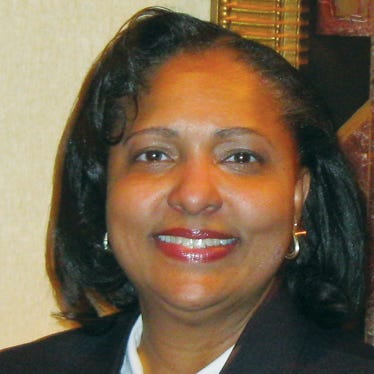Spotlight on industry leadership: A discussion with Esq. Rick Collins
Heather Fairman of DF Guardian Consulting Inc. chats with sports nutrition lawyer Rick Collins about leading by example, showing empathy and breaking through one’s comfort zone.

At a Glance
- Meet New York-based sports nutrition lawyer Rick Collins, who weighs in on leadership.
- It was the lessons Collins learned in bodybuilding that made him a better lawyer and a better leader.
- Collins would impart three key values to the next generation of leaders: empathy, courage and resiliency.
Philanthropy. Charity. Advocacy. Passion. Power. Kindness. These traits can be attributed to Rick Collins’ character as a leader. Before beginning our conversation, Collins discussed the most recent support he and others helped provide to homeless and needy individuals through a very worthy organization, “Warriors for A Cause,” of which he is a board member.
This Long Island, New York-based charity takes a “guerrilla philanthropy” approach to providing shoes, clothing, food, coffee and toiletries to many New Yorkers experiencing homelessness in a “nimble, targeted and nonbureaucratic way,” Collins explained. This is the type of leadership reflective of Collins’ heart toward humankind. His clients, colleagues and industry peers, without hesitation, will attest to this.
Heather Fairman: What is your definition of leadership? And who was most influential in the earlier years of your life in helping you identify yourself as a leader?
Rick Collins: “Being a lawyer means being a leader. Being a leader means not asking those you lead to do what you would not do. Leading by example is a core tenet of leadership.”
A past president of the Nassau County Bar Association, one of the largest suburban bar associations in the U.S. with upwards of 5,000 members, Collins shared that having such a leadership role in this 125-year-old organization was a wonderful experience that made him realize “being a lawyer means being a leader” in many ways. Lawyers help direct the policies and processes of an equitable society and help lead ordinary people through the systems of justice.
Collins does this on behalf of his legal clients and as a board member of several charitable and philanthropic organizations. Collins shepherds his clients through various challenges, decision-making processes and often through “troubled waters.” Many of his clients are in the sports nutrition and natural products industry, which is the focus of much of Collins’ practice. He not only serves the industry with integrity and commitment, but also participates in and supports it as a lifetime sports nutrition enthusiast and a former competitive bodybuilder.
Collins’ background is a great part of what influenced him as a leader in the earlier years of his life. Known for his expertise as a highly successful and seasoned leader in the legal profession, and for his unassailable ethical standards (AV-rating), Collins earned one of the most prestigious peer recognitions from the Martindale-Hubbell directory and is listed in the Bar Register of Preeminent Lawyers.
He says that for every organization to succeed, there must be a leadership hierarchy — loosely analogized to military structure — that is led by an “alpha,” or leader doing and being their best. Collins elaborated on this concept by sharing a book he co-authored in 2009 about men’s health, fitness, exercise and attitude, “Alpha Male Challenge” (Rodale Press, Sept. 2009). It’s a book about being your best, and describes “alpha males” who have found leadership within themselves.
Though the title would suggest it is only for men, Collins explained that many women who have read and followed the book, which offers a 10-week workout program and nutrition plan inclusive of dietary supplements, have been thrilled with their progress and requested a sequel specifically for women. He emphasized the book in its unique form applies to both men and women — the concept of being an “alpha” applies to everyone. It’s about finding the core aspects and qualities of your leadership.
Collins said the book also highlights a critical core principle: The top tier of leadership should never ask those they lead to do what leaders themselves would not do. If someone supervises staff, that leader should model how to approach problems and train the people well. Then trust them to make the right decisions.
Fairman: What was the most important lesson you learned very early in your career as you stepped on the first “rung” toward being a leader?
Collins: “Having been a bodybuilder has made me a better lawyer than I ever would have been otherwise. Nobody develops muscularity overnight. You don’t go to the gym on Monday and wake up with an Adonis physique on Tuesday. That’s not the way it works. You have to put in the work daily. Make small incremental improvements, which collectively over a long period of time will result in visible progress. Incremental growth leads to that leap moment.”
Collins described his growth and development journey to leadership much like bodybuilding. The lawyer described each step as incremental sacrifices toward successful goals.
He started lifting weights as a teenager and went on to participate in bodybuilding competitions in which he won trophies and awards. It was the lessons he learned in bodybuilding that made him a better lawyer and a better leader: discipline, perseverance, creativity in overcoming obstacles and sacrifice.
It’s a process in bodybuilding that requires patience and an attitude of success, and it is applicable to growing as a leader in any area. In the end, the person who puts in this hard work each day is a more confident, capable and better leader.
Fairman: What would you say is the single most important impact you could make as a leader in the industry?
Collins: “The window of opportunity.”
In his journey to becoming a lawyer, Collins shared he wasn’t privileged to start with a “silver spoon in his mouth,” so to speak. He was fortunate to have earned a full academic scholarship to attend law school based on his college grades and test scores. Without the burden of law school loans, he accepted a position as a prosecutor at a salary below those of the “white shoe” (aka prestigious) law firms.
That position gave him the opportunity as an aspiring trial lawyer to be thrown into the fire of courtroom cases with little preparation; his growth was “baptism by fire.” One impactful story he told was of a very early lesson he learned during his initial interview as an applicant for the job. Collins was standing before the interviewer delivering an opening statement in a criminal fact pattern when he was suddenly interrupted and told to open a window, as the office was getting too warm.
Collins pulled with all his might but was unable to budge it. The interviewer peppered the aspiring prosecutor with legal hypotheticals. Collins survived the arduous ordeal without getting flustered. That was the interviewer’s whole purpose. It turns out that window had never been opened in 50 years. It had been painted shut. Nobody could open it. The interviewer wanted to see how Collins handled unexpected situations that could be frustrating during a trial. Could he think on his feet and keep a cool head during distraction and frustration? Collins passed the test, and the interviewer went on to become one of his favorite mentors.
“Never panic! Stay calm and learn to think on your feet,” Collins advised. And embrace challenging events with patience and as an opportunity for growth.
Fairman: With a focus on the future of the industries you serve, how important is it that the upcoming generations are mentored and trained to lead?
Mentorship is critical, Collins shared. He has a passion for working with young lawyers who often reach out to him for guidance. Collins takes the time to share the lessons he went through and even encourages these young esquires — as well as people he mentors in the natural products industry — to go to the gym. In his opinion, all aspects of life can be bettered through fitness.
As a board member of the What’s Up With SUPPS networking organization in the natural products industry, Collins strongly places a high value on mentorship, especially in these times. He regularly shares his knowledge with the up-and-coming generations — from sports nutrition to law school students.
“These are tomorrow’s leaders,” he said.
Fairman: What are three key values that you would impart to the next generation of leaders within the sports nutritional industry, as well as to those in the legal defense arena?
Collins: “Three key values — empathy, courage and resiliency — are the ‘currency’ that makes leaders grow and improve, and the ones who follow them are the ones that will become the best leaders in our industry. Courage is not the absence of fear. Courage is about being afraid, yet doing what needs to be done anyway. Nothing grows in a safe space.”
Empathy is key because as a leader, it is important to understand the positions of the people working within a chain of command or hierarchy. If a manager exercises such a level of understanding and is confronted by someone whose perspective is different from theirs, it becomes an opportunity to listen to that person, hear what they have to say and find some common ground. This becomes a key to effective leadership — “100%!” Collins assured.
Learning to overcome fear is leadership at its core, Collins added. He told the story of choosing to not be afraid when he found himself getting queasy while doing repairs on his roof. Rather than give in to the fear, he decided to do a charity skydive to overcome this developing fear. It worked.
Overcoming one’s fear through a parachute jump breaks through the self-imposed limitations that hold people back from fulfilling their potential and being the best versions of themselves. The discovery that we all have the fortitude inside to do what we didn’t think possible gives rise to feelings of euphoria and competency. When one lands safely from that skydive, they will ask themselves, “What else am I capable of that I never thought possible?” Make that jump, Collins urged. It’s a game-changer. You will be forever empowered!
From this, one could likely deduce that he vehemently disagrees with the philosophy that humans are inherently fragile and should stay in a safe place. People cannot progress if they remain in their comfort zones. Growth comes from challenging oneself, and accepting discomfort is the way to progress and evolve. To end as Collins started, in reference to the bodybuilding analogy, most anybody in a gym knows that if a person does no more than the same 10 repetitions of an exercise, their muscles won’t grow. Struggling with the final, or 11th, rep is what makes the difference.
About the Author
You May Also Like

